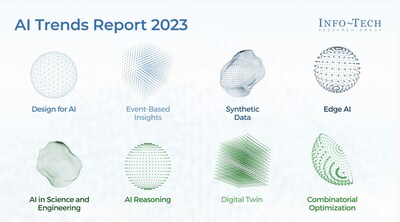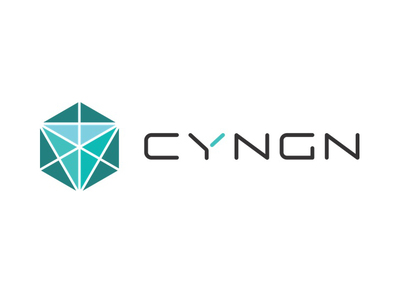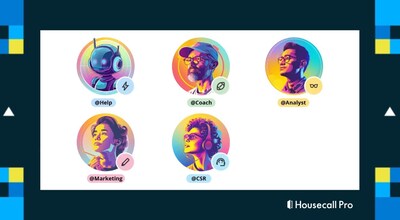The Top Artificial Intelligence Trends for 2023 Published in Info-Tech Research Group's Latest Report
Press Releases
Mar 27, 2023
The firm's new report provides an overview of the eight trends that will continue to drive AI innovation over the coming months.
TORONTO, March 27, 2023 /PRNewswire/ – To help tech leaders and their organizations stay on top of the latest technology shifts, global IT research and advisory firm Info-Tech Research Group has released its AI Trends 2023 report. The report covers various topics, including synthetic data, edge AI, digital twins, and AI reasoning, and is intended to prepare teams for both what is currently happening and what is coming.
With AI technologies evolving rapidly, technology leaders must understand and remain ahead of the latest trends and developments. This forward-thinking approach will allow leaders to plan for future investments in AI-powered technologies and systems, drive new strategic business opportunities, and enable their organization's competitive advantage.
"As the pace of AI innovation accelerates, it is important for organizations to have a business strategy in place to respond to emerging technologies and the transformations AI brings to the organizations," says Irina Sedenko, research director at Info-Tech Research Group. "The consistently changing AI landscape is impacting all areas of business and all industries. Understanding the strategic directions and overall trends of AI innovation will help IT leaders identify the opportunities enabled by new technology and define strategies for new challenges."
Info-Tech's AI Trends 2023 report details the barriers that can slow the initial adoption of AI, such as data readiness and data quality issues, the lack of tools or methodologies, the lack of understanding of AI use cases, and how best to define the business value of AI investments. The report also explores strategies that enterprises have used to overcome these challenges.
In the report, the firm has identified the following eight trends for the coming months:
- Design for AI – Sustainable AI system design will need to consider aspects such as the business application of the system, data, software and hardware, governance, privacy, and security. It is crucial to define the purpose of AI and set goals for its implementation from the beginning. The approach should cover all stages of the AI lifecycle and enable iterative development. To take advantage of different tools and technologies for AI development, deployment, and monitoring, the AI system design should consider software and hardware needs and seamless integration with other existing systems within the enterprise.
- Event-Based Insights – AI-driven signal-gathering systems provide insights and predictions for strategic decision making through continuous data analysis. AI enables scenario-based modeling and pattern identification, allowing businesses to understand how events are related. An event-driven architecture that analyzes various data types across multiple channels will be necessary for anticipatory capabilities.
- Synthetic Data – Synthetic data is used for training machine learning models when real data is insufficient or does not meet specific requirements. Synthetic data can also remove contextual bias from personal data, ensure privacy compliance, and solve data-sharing challenges. Researchers have found that synthetic data sets can outperform real-world data in some cases and can be used in various applications such as language systems, self-driving cars, fraud detection, and clinical research. Moving forward, synthetic data has the potential to enable innovation across other emerging applications.
- Edge AI – Edge AI allows AI applications to be deployed in physical devices where data is generated, such as IoT devices or healthcare devices, as well as self-driving cars. It offers benefits such as real-time data processing, reduced cost and bandwidth requirements, increased data security, and improved automation. Edge AI can be used for various applications, including computer vision, geospatial intelligence, object detection, drones, and health monitoring devices.
- AI in Science and Engineering – AI has numerous uses in science and engineering, including genome sequencing for identifying genetic disorders, modeling physics processes, and understanding planet ecosystems. It is also driving advances in drug discovery by assisting with molecule synthesis and property identification. AI is expected to continue to contribute to scientific understanding by enabling faster innovation, generating new insights and ideas, generalizing scientific concepts, and transferring them between areas of scientific research.
- AI Reasoning – The majority of machine learning and AI applications today involve predicting future behaviors based on historical data and correlations between different parameters. However, the development of a causal AI that can identify root causes and causal relationships between variables without mistaking correlation and causation is still in its early stages. Researchers are working on causal graph models and algorithms at the intersection of causal inference with decision making and reinforcement learning to address this challenge.
- Digital Twin – Digital twins enable organizations to predict future failures, perform predictive maintenance, and design and test complex equipment before physically manufacturing it. Digital twins are used in various industries, including manufacturing, architecture, construction, energy, infrastructure, and retail. Combining digital twins with the metaverse provides an immersive, interactive environment with real-time physics capabilities. Future potential includes enabling the autonomous behavior of digital twins, which will influence the growth and further advancement of AI.
- Combinatorial Optimization – Combinatorial optimization is traditionally used in supply chain, scheduling and logistics, and operations optimization. Recently, the integration of deep learning algorithms with classical optimization algorithms has led to significant performance improvements. Research in this area continues to explore the potential of machine learning and AI in solving challenging combinatorial and decision-making problems.
Download and read the full AI Trends 2023 report to learn more about each of the trends for the year ahead.
To schedule interviews with an Info-Tech analyst on the topic of AI trends or to capture additional insights via email, contact pr@infotech.com.
About Info-Tech Research Group
Info-Tech Research Group is one of the world's leading information technology research and advisory firms, proudly serving over 30,000 IT professionals. The company produces unbiased and highly relevant research to help CIOs and IT leaders make strategic, timely, and well-informed decisions. For 25 years, Info-Tech has partnered closely with IT teams to provide them with everything they need, from actionable tools to analyst guidance, ensuring they deliver measurable results for their organizations.
Media professionals can register for unrestricted access to research across IT, HR, and software and over 200 IT and Industry analysts through the Media Insiders program. To gain access, contact pr@infotech.com.
![]() View original content to download multimedia:https://www.prnewswire.com/news-releases/the-top-artificial-intelligence-trends-for-2023-published-in-info-tech-research-groups-latest-report-301782583.html
View original content to download multimedia:https://www.prnewswire.com/news-releases/the-top-artificial-intelligence-trends-for-2023-published-in-info-tech-research-groups-latest-report-301782583.html
SOURCE Info-Tech Research Group





